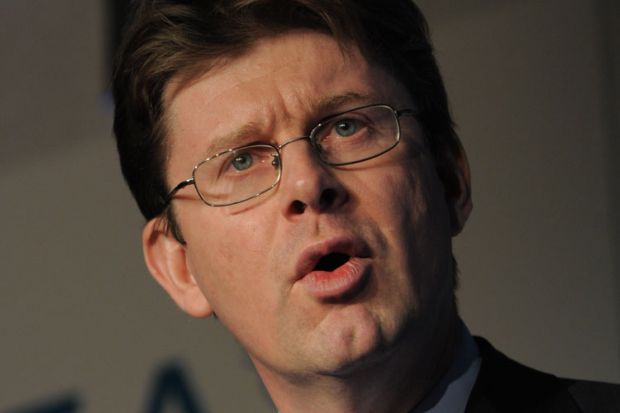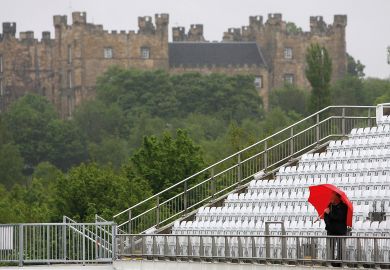Source: CBI
Greg Clark, the universities minister, has dismissed criticisms that this summer’s record undergraduate intake will lead to overcrowded classrooms and less qualified students at the most selective institutions.
The number of students starting degree courses this autumn – when 30,000 extra student places are available in England – is set to top 500,000 for the first time, with 440,130 applicants accepted on to courses by 18 August, according to Ucas. That is 3 per cent higher than the same time last year, with an extra 14,400 students accepted so far. In 2013, 495,600 were placed on to higher education courses.
This year, the most selective universities are growing twice as fast as those with lower grade requirements, Ucas also said. High-tariff institutions have taken 4 per cent more UK students compared with low-tariff universities, whose domestic intake rose by 2 per cent.
It means that an extra 5,310 students will head to high-tariff universities this year, which grew by an unprecedented 10 per cent (10,000 students) in 2013, a year-on-year increase that may raise concerns over an erosion of the student experience.
But Greg Clark, who replaced David Willetts as universities minister last month, rejected concerns that students might find themselves on overcrowded courses or would struggle to find rooms near to their campus. “Universities do not need any lectures from me about looking after their students well,” said Mr Clark. “We know student satisfaction figures show continuing advances being made, so every university has a strong incentive to remain an attractive place for students to attend,” he added.
With the number of 18-year-olds in the population falling again and A-level grades marginally down on last year, some observers have questioned how higher education can recruit record numbers without lowering entry standards.
In its first major statement on higher education, the UK Independence Party said that universities had significantly relaxed entry requirements to fill courses. A student with two Cs and a D in her A levels had still gained a place when her original offer was three Bs, claimed Paul Nuttall, Ukip’s deputy leader.
But Mr Clark believed that universities would not jeopardise their reputations by taking unsuitable candidates, despite being able to recruit 6 per cent more students over their quotas before they are fined for over-recruitment this year.
“If they admit students who drop out, this will have large financial consequences, as well as being a reputational blow,” Mr Clark said.
“Having a reputation for quality and excellence is one of the key attributes that students look for, and no university will want to take any risks on that,” he added.
Mr Clark said that it was “a fantastic moment to take over” the universities brief given this year’s record recruitment and the fact that numbers are set to rise again next year when controls on undergraduate numbers are abolished.
“It is a historic decision to take off the cap and it is really inspiring to be involved in higher education at this time,” he added.
Register to continue
Why register?
- Registration is free and only takes a moment
- Once registered, you can read 3 articles a month
- Sign up for our newsletter
Subscribe
Or subscribe for unlimited access to:
- Unlimited access to news, views, insights & reviews
- Digital editions
- Digital access to THE’s university and college rankings analysis
Already registered or a current subscriber? Login





